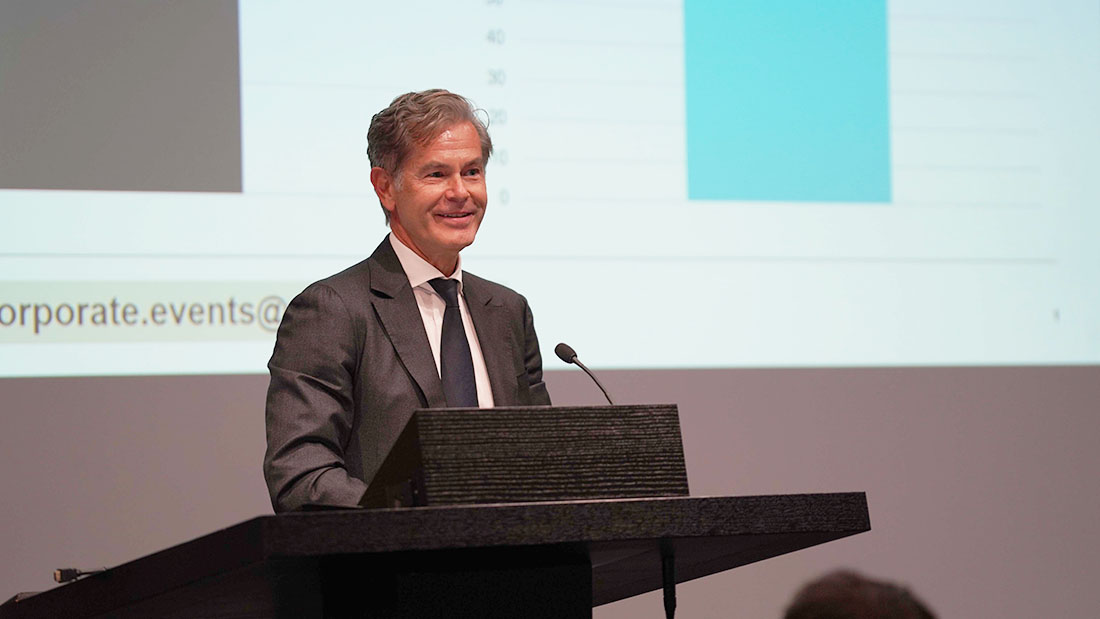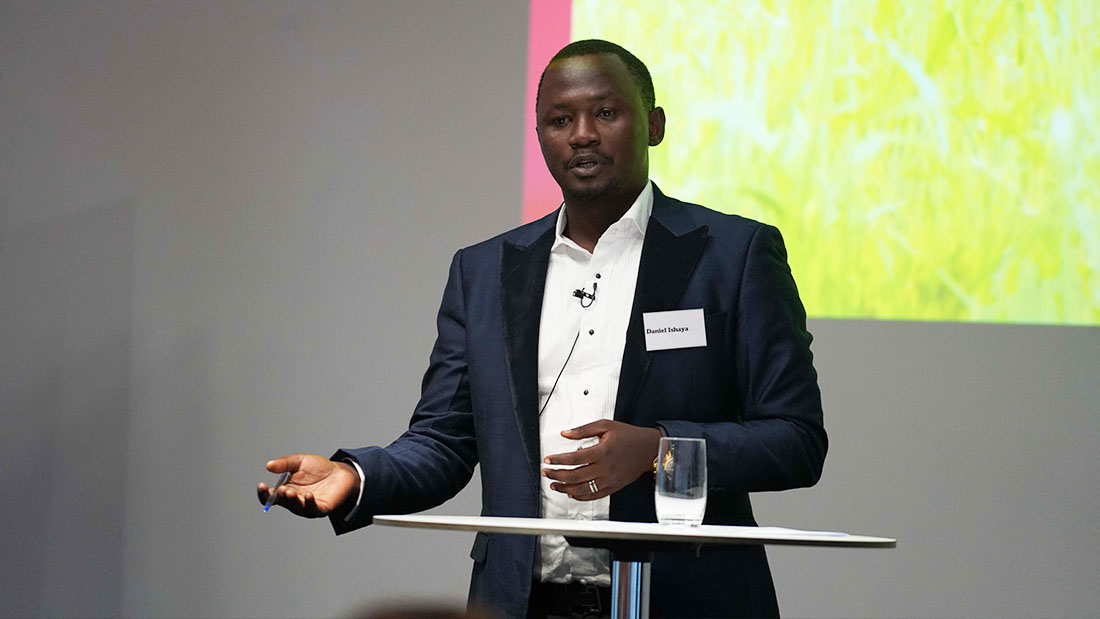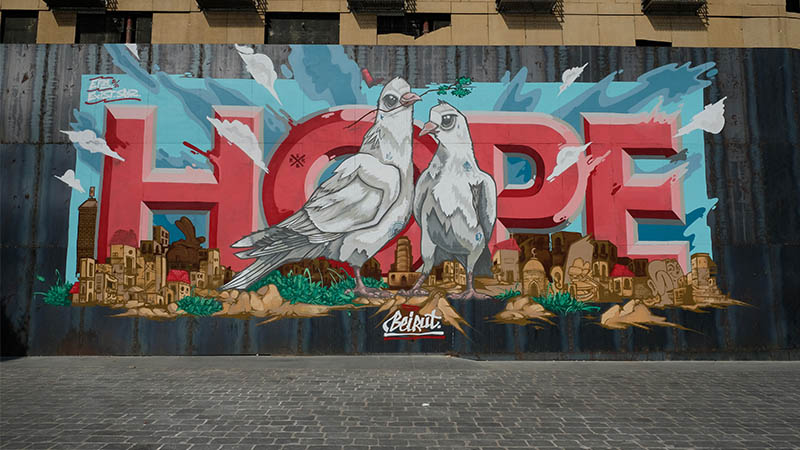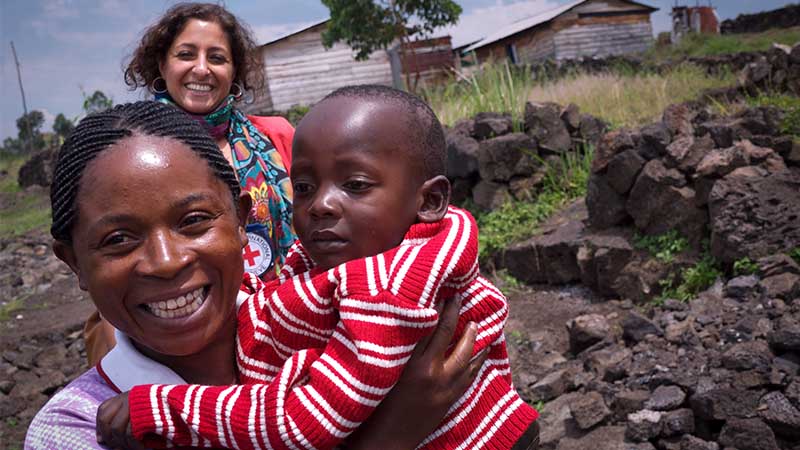Vontobel donates for a digital health project
The digital health project ALMANACH is already a blessing for tens of thousands of children in the state of Adamawa in Nigeria, which is plagued by crises. The innovative app, based on a clinical algorithm, increases the rate of correct diagnoses and improves preventive care for small children. Vontobel has launched an internal fundraising initiative so that even more children under five years of age can receive proper treatment and protection against preventable illnesses.
Improving health in precarious situations
As an innovative app on tablets or smartphones, the ALMANACH provides especially valuable services in regions where health care is insufficient or difficult to access. Only a handful of pediatricians are available in an area as large as Switzerland. Islamic terror groups in northeastern Nigeria have made people flee the area. Children and families seek refuge in refugee camps, where conditions are difficult, or in reception communities. The result is that young children frequently suffer from preventable diseases.

©Vontobel: Axel Schwarzer, head of asset management and sponsor of Vontobel’s fundraising initiative in 2019
“The ALMANACH is a digital doctor that has already saved the lives of many children. Vontobel wants to help even more children."
Axel Schwarzer, head of asset management and sponsor of Vontobel’s fundraising initiative in 2019
One step at a time towards the right diagnosis
The ALMANACH (Algorithm for the Management of Acute Childhood Illnesses) helps health workers with targeted questions during the diagnosis process and proposes medication for treatment. When doing so, it considers the inventory at each health station. According to the ICRC, the number of health facilities in Nigeria equipped with the ALMANACH is to be increased from 248, the current number, to approximately 270 by the end of 2019. That number should be around 400 by the end of 2020.
The ALMANACH’s questions make life and death decisions
Here is one of many success stories: a mother has brought her 14-month-old toddler to Mubi General Hospital. Her child has been screaming for hours because it is suffering from ear pain. Discharge is flowing out of both ears. The ALMANACH asks the nurse about the mother’s HIV status, which unfortunately turns out to be positive. The toddler is then referred for further examination and care. The nurse on duty says that even though she has several years of experience, she had not thought about an HIV infection at all in this case; instead, she would have simply prescribed antibiotics. In this instance, ALMANACH saved not only the toddler’s life but the mother’s as well.

©Vontobel: Dr. Daniel Ishaya
Doctor from Nigeria at Vontobel’s fundraising event
Every year, Vontobel opens its fundraising initiative with an internal event in the headquarters. The ICRC and Swiss Tropical and Public Health Institute (Swiss TPH), which developed the ALMANACH together and have been implementing it in Nigeria since 2016, provided some insightful presentations. One of the event’s highlights was the interview with Dr. Daniel Ishaya. He works as a physician in the state of Adamawa (Nigeria), which is where the ALMANACH is being used. An excerpt from the interview:
Dr. Daniel Ishaya, how can we picture a health center in Adamawa?
The health centers are small health stations with modest equipment and three to four rooms. Some of them are difficult to reach; sometimes, they are a day’s journey away or isolated from the outside world during the rainy season. Three to four health workers care for 20 to 30, and sometimes even as many as 50, children every day.
Can an app replace a doctor?
No, the ALMANACH cannot replace staff with medical training. The problem is that qualified doctors are leaving rural Adamawa and moving to large cities or even abroad, where they can earn good money. That is why it is all the more important to work to-gether with the people who remain in the region.
The ALMANACH helps remedy certain knowledge deficits. After all, training for basic medical qualifications only takes two to three years to complete. Thanks to the ALMANACH, medical staff can proceed more systematically using the questions and receive support when making diagnoses. The standardized procedure also helps make sure preventive measures, such as vitamin A provision or possible malnutrition, are addressed during consultations.
What challenges are there?
Many. For example: with the help of the “remote monitoring system,” we noted that one of the health centers did not report a single malaria case for two weeks. Based on our experience, however, we know that malaria always accounts for between 30 to 50% of all illnesses. We found out that the fever thermometers in the health center were broken! And since the algorithm logic says “no fever means no malaria,” no malaria cases were reported. We have adjusted our quality assurance processes as a result of this experience.
Could we use the app everywhere in Africa?
Yes, the ALMANACH has great potential. It is however important to adjust it to local circumstances: Malaria is a frequently occurring illness in the state of Adamawa. If the ALMANACH were used in regions over 1,500 meters above sea level, it would need to be adjusted because malaria mosquitoes do not live at these elevations. As it happens, the ICRC is planning on developing a version of the ALMANACH for Somalia next year.
Vontobel has been a member of the ICRC Corporate Support Group since 2005
Selected Swiss companies have founded the ICRC Corporate Support Group in order to provide long-term support for the ICRC's new tasks. Vontobel has been a member since 2005. As part of this membership, we are launching an internal annual fundraising appeal in the months of November and December in favor of the ICRC.







